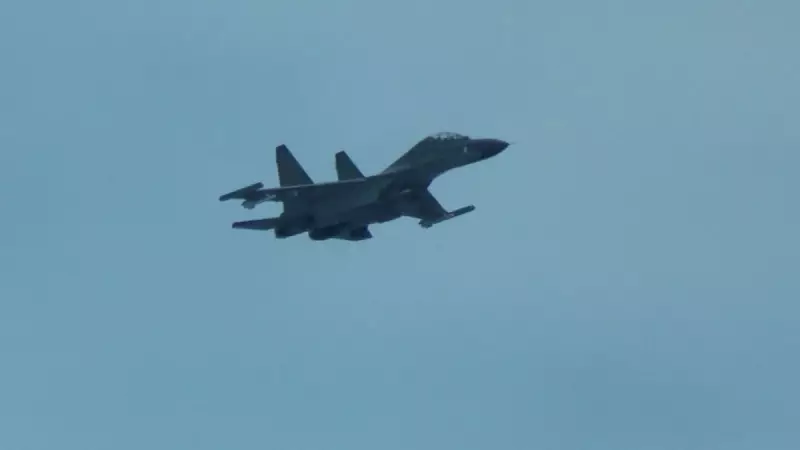
In a dramatic escalation of tensions in international waters, Australia has formally accused China of engaging in "dangerous and unprofessional" military conduct after a Chinese fighter jet released flares directly in the path of an Australian Navy helicopter.
The alarming incident occurred in the Yellow Sea on May 4th, when an Australian MH-60R Seahawk helicopter operating from HMAS Hobart was conducting routine operations as part of United Nations sanctions enforcement against North Korea.
Dangerous Intercept Puts Lives at Risk
According to Australian Defence Minister Richard Marles, the Chinese J-10 fighter jet flew extremely close to the Australian helicopter before deploying flares in a manner that created "a significant risk to the aircraft and crew." The flares were released approximately 300 meters in front and 60 meters above the Seahawk helicopter, forcing the Australian pilots to take immediate evasive action to avoid potential collision or damage.
"This was an incident that was dangerous and unprofessional," Minister Marles stated unequivocally. "The release of flares in the flight path of our aircraft created a significant risk to the aircraft and to the people on it."
International Waters, Rising Tensions
The confrontation highlights the growing military tensions in the Asia-Pacific region as China continues to assert its presence in international waters and airspace. The Australian helicopter was operating legally under UN mandate when the intercept occurred, raising questions about China's commitment to international norms and safety protocols.
This incident follows a pattern of increasingly assertive behavior by Chinese military forces in the region, including previous encounters with Australian aircraft during similar monitoring missions. The Australian government has made it clear that such actions undermine regional stability and violate established international standards for military conduct.
Diplomatic Response and Regional Implications
Australia has raised the matter through appropriate diplomatic and military channels, expressing serious concerns about the safety of its personnel and the implications for regional security. The incident comes at a sensitive time in Australia-China relations, which have seen gradual improvement after several years of diplomatic strain.
Defence experts warn that such dangerous intercepts could lead to miscalculation or accidental escalation, potentially resulting in loss of life or broader international incidents. The Australian government has emphasized its commitment to continuing its UN-mandated operations while calling for all nations to adhere to established safety standards in international airspace.





